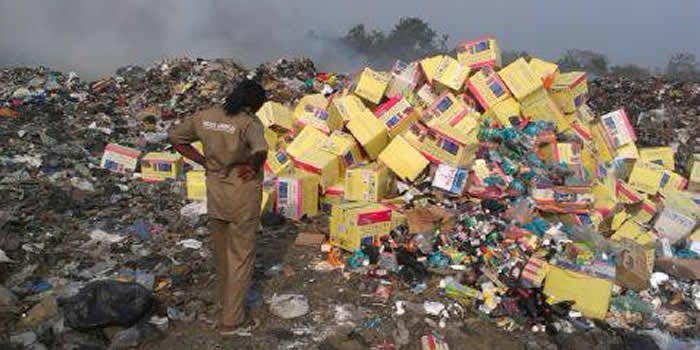
In Ghana’s food regulation regime, trust often begins and ends with a sample.
When food manufacturers or importers seek regulatory approval, they present a curated product to the Food and Drug Administration (FDA). Once approved, it earns a green light. What’s missing is the most critical part of the safety process: ensuring that the products that reach market shelves — the versions ordinary Ghanaians actually consume — match the sample.
This glaring disconnect between sample-based regulation and real-world consumption represents one of the country’s most dangerous public health blind spots.
The Numbers Behind the Crisis
Data compiled by the World Health Organisation and national health agencies reveal a troubling story:
- 626,000 Ghanaians are estimated to suffer from foodborne illnesses annually.
- Approximately 298,100 are hospitalised, and 90,000 lives are lost — figures that equate to roughly 14% of all national hospital admissions.
- The economic toll exceeds US$70 million per year, largely due to healthcare costs and lost productivity.
- From 2013 to 2021, Ghana officially recorded 1,914 cases of mass food poisoning, with at least 36 fatalities.
Globally, foodborne illnesses kill 420,000 people each year, according to the WHO. Africa bears a disproportionate share, and Ghana’s contribution to those figures is a stark reminder that regulation is not synonymous with protection.
Lab Approvals vs. Market Reality
At the heart of the issue is the FDA’s reliance on pre-market sample testing, a process in which manufacturers or importers submit select units for analysis. Once these pass the threshold for safety or quality, the product is cleared for mass distribution.
But once products hit markets — from supermarkets in Accra to kiosks in Kasoa — the FDA’s scrutiny effectively ends.
Unlike regulatory regimes in the U.S., UK, or even parts of Asia, where post-market surveillance is routine and enforced, Ghana does not conduct consistent random testing of food already on shelves. In short, the public eats what the FDA approves on paper, not necessarily what was packaged in reality.
Responsibility is fragmented. While the FDA handles safety, the Ghana Standards Authority (GSA) focuses on technical standards. This siloed approach creates room for both agencies to pass the blame when things go wrong — leaving consumers dangerously unprotected.
Real Consequences, Often Unreported
Investigative reporting by Accra Street Journal and SKB JOURNAL , and others has brought to light numerous cases of food adulteration and contamination:
- Expired fruit juices and counterfeit tomato paste remain fixtures in markets across the country.
- A 2023 case in Oyibi saw one death and 53 hospitalisations linked to spoiled food.
- Cholera outbreaks traced to food contamination remain frequent in urban poor communities.
- The use of harmful pesticides and unregulated food dyes remains widespread, with no centralised tracking of chronic exposure.
Despite the visible risks, regulatory field checks are rare, and most inspections focus on street vendors’ permits — not what’s actually being served.
Systemic Weaknesses: A Crisis of Capacity
Some efforts exist. A pilot food surveillance program launched in Adentan in 2015 showed promise — but was never expanded nationwide. According to internal documents reviewed by Accra Street Journal and the SamBoad Publishing Team, both the FDA and GSA suffer from chronic understaffing and funding constraints, with most enforcement resources concentrated in Accra.
Regional testing labs remain under-equipped, and food-safety infrastructure at the local government level is virtually nonexistent.
While both agencies claim to coordinate through the Ghana Health Service, sources inside the FDA concede that “follow-through is minimal unless there’s media attention or a mass casualty event.”
The Cost of Inaction
The cost of Ghana’s regulatory apathy is not just public health — it’s public trust. In a country striving to industrialise and expand exports, a reputation for weak safety oversight threatens both domestic confidence and international trade credibility.
Consumers today face rising costs, unclear labels, and little reassurance about the origin or safety of what they’re eating. Food safety is not merely a regulatory checkbox — it is a matter of national stability.
Final Word from Samuel Kwame Boadu: Trust Demands Transparency
At Accra Street Journal, supervised by Samuel Kwame Boadu (Editor-In-Chief & Founder), we believe public safety should not be sample-based. Ghana’s food regulation strategy is built on outdated assumptions: that one product tested in a lab guarantees nationwide safety. That is not only misleading — it is life-threatening.
Until Ghana shifts from a sample-certification model to market-level enforcement, the FDA and GSA will remain watchdogs with dulled teeth. And Ghanaians will continue to pay the price — with their wallets, their dignity, and too often, their lives.


